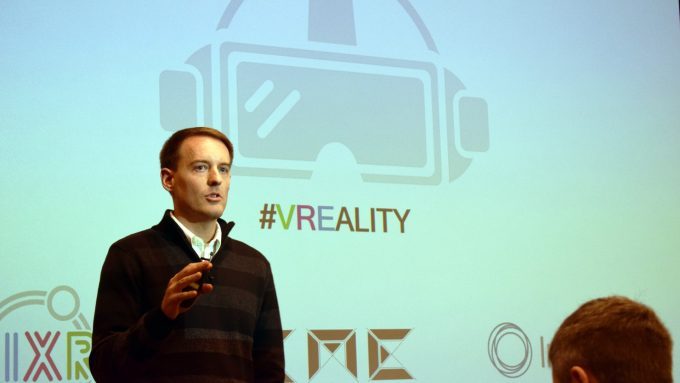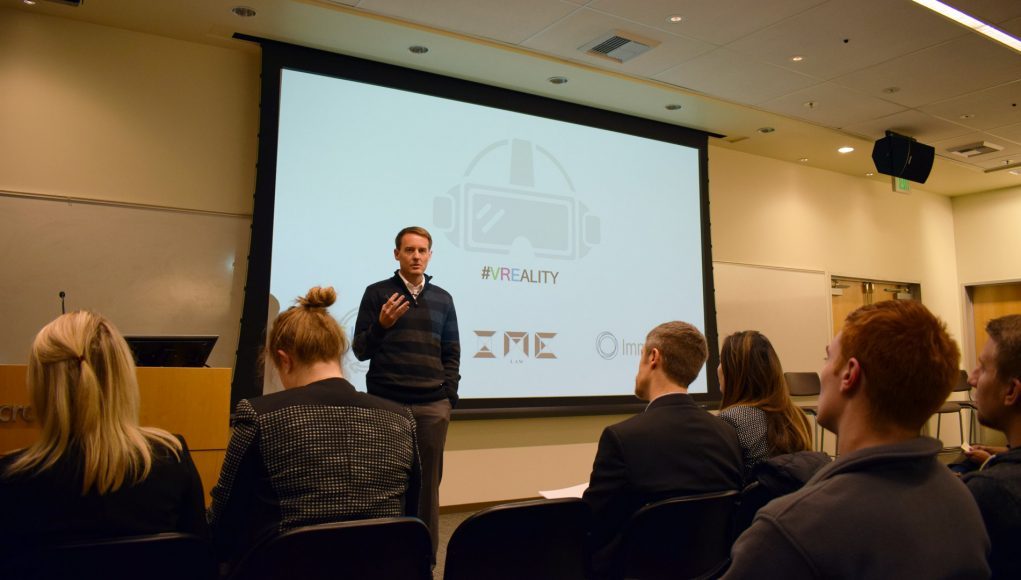Earlier this month, a panel of legal experts met at the SIXR Legal Workshop to discuss legal challenges in VR and AR development and how to navigate them. While VR and AR startups have many of the same legal needs as other tech companies, there are some challenges that are unique to the VR and AR space. While the panel focused mainly on the US legal system, some of their guidance also applies in other countries.
VR Does Not Fit into Any Existing “Work-for-hire” Category

Before the panel, Road to VR sat down with Matt Hooper, founding partner at IME Law, to discuss how VR is different from other fields when it comes to legal matters. One of the first things he mentioned was how copyright law applied to VR work.
“There are only nine categories of work that can qualify as ‘work made for hire’ between independent contractors, meaning that if one contractor creates it, the other can own it without the need for a separate assignment. One of them is an audio-visual work, but one of them is not software code.”
Currently, this is type of work is new territory for the United States Copyright Office, but it’s something that could be cleared up in the future if the office issues an advisory opinion or adjusts their compendium. Hooper explains:
“They could make a statement in the compendium saying ‘A virtual reality work qualifies as an audio-visual work’ or ‘a virtual reality work that is mostly software-based (like a game) does not, but a virtual reality work that is mostly film-based does.’ It’s going to be really interesting to see how they do that,” he said. “They did have to address this issue with respect to video games. Often contracts provide that the content creator is both performing the work as a work-for-hire, and assigning all rights to the company commissioning the work, although this can create labor issues in certain states.”
Biometric Data is Legally Protected
According to Brian Sommer, of counsel at IME Law, VR and AR companies should be aware of legal protections regarding the collection and usage of biometric data.
“There are certain things that you have to disclose, plus you need user permission, before utilizing biometric data. Often what happens is lawsuits stem from a company collecting this data without getting consent first.”
In the US, both Illinois and Texas have laws pertaining to biometric data, and in Illinois, that law has been applied in a lawsuit against Snapchat; in this class-action lawsuit, the plaintiffs are alleging that the company failed to inform users that it was collecting facial data when using the app’s AR-powered facial filters.
Even determining what legally constitutes biometric data can be challenging by itself. Kent Bye recently spoke with VR investor and attorney, Sarah Downey about privacy in VR.
“We have PII (personally identifiable information) which is a legal category when it comes to information protection, and that is very specifically laid out: what counts as PII and what doesn’t. There’s whole industries of people and privacy professionals whose jobs are around what counts as PII, what doesn’t, and how we protect that.”
Operating Agreements Are Critical

Beyond the specific VR and AR-related legal challenges, startups should also be mindful of the many traditional legal pitfalls to avoid. One of those pitfalls is going into business without first having an official operating agreement.
Jerry Carleton, principal attorney at Immix Law Group says the agreement should contain not just intellectual property rights and how much partners are going to own, but also what is expected of each partner and what happens when someone needs to exit the partnership.
To illustrate his point, he referred to two companies, one that had an operating agreement and one that didn’t. Both companies had problems with a minority owner, and for the company with the operating agreement, this was a simple 15-minute phone call. The company without an agreement ended up spending 18 months in court.
“It was a total waste,” Carleton said. “Those resources could have gone to growing the company, to employing more people, or to pushing their technology out… Again, make sure you’ve got an agreement.”







